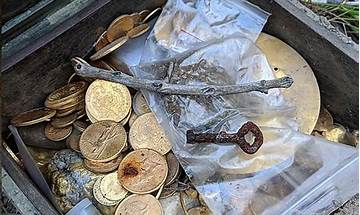The national treasure that has been lost for thousands of years was once used by uncles to spread pancakes, and collectors sold it for 200 million yuan.

A national treasure that has been lost for thousands of years was once used by uncles to put pancakes in the street, and collectors sold it for 200 million yuan. Witness of the times. Some unremarkable cultural relics, in the hands of people who don't know the goods, often encounter dust like pearls, but in the eyes of people who are familiar with history, they are priceless.
Xijiapan, a bronze ware of the Western Zhou Dynasty, is such a cultural relic. In appearance, it is very similar to a frying pan. It is such a black and round copper coin, but it is an extremely precious national treasure.
Xijia brand is made by Yin Jifu, and "Xijia" is his name in the bronze inscription. Yin Jifu was an important minister in Zhou Xuanwang about 2800 years ago. The inscription on the bottom of the dish records that he followed Xuanwang's crusade and collected taxes from the Yi people in South Huai, and rewarded him for his achievements: the scorpion in Rump was made (in the afternoon) ... Xiboji's father made the dish, and his eyebrows lived for thousands of years, and his descendants used it forever. "The purpose of this disk is to record important events and the time when they occur.
This cultural relic has a long history and is of great significance for studying the history, culture and system of the Western Zhou Dynasty. The earliest recorded collector was Xian Yushu, a calligrapher in Yuan Dynasty, who was also "saved" from the pancake business. At that time, Xian Yushu was the secretary of the Third Division. Once, he was sitting in Li Shun's father's house as a clerk, and found that the copper plate of his pancakes was a bit special. Because he did some research on ancient bronzes, after careful observation, he was pleasantly surprised to find its value.
Li Shun's father's family didn't have any research on antiquities, and it was bought from a villager who opened a pancake stall for only five taels of silver. When using Xijia pot to make pancakes, Li Shun's father's family thought it was not convenient enough and broke its leg, which made Xian Yushu feel sorry. Since then, he has treasured the Xijia pot as a treasure handed down from generation to generation. Later, times changed, and Xi Jiapan was transferred to collectors and Chen Jieqi during the Republic of China, and disappeared from the war.
During the period, there were many fakes of Xijia Pan, but they were all identified one by one. Because of the unique inscription on the bottom of the Pan, it was difficult for counterfeiters to copy them perfectly. Both the Japanese Bookstore and the Cultural Relics Museum of the Chinese University of Hong Kong once exhibited a "Xi Jia Pan". Later, after comparing it with the rubbings handed down by Chen Jieqi and Wu Dacheng, it was found to be a fake.
Until 2010, a Chinese living in the United States saw a cultural relic very similar to the Xijia Plate at a small auction in the United States. He has a good knowledge of traditional culture, so he spent a lot of money to buy this mat, which was later identified as genuine. After years of tossing and drifting, cultural relics can finally return to their hometown.
In 2014, the collector unveiled the Xijia section at the Hubei Culture and Art Expo, which attracted the attention of collectors. On July 15, 2017, Xijiapan was officially auctioned at the Xiling auction in Hangzhou, with a transaction price of 185 million yuan, and the total commission price exceeded 200 million.
This price was sold before the Xijia plate was completed. If Li Shunfu's family hadn't broken the foot of the dish when they used it to make pancakes in the Yuan Dynasty, maybe the Xijia dish could still fetch a higher price.
Declaration: All article resources on this website, unless otherwise specified or labeled, are collected from online resources. If the content on this website infringes on the legitimate rights and interests of the original author, you can contact this website to delete it.






